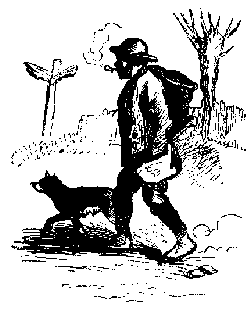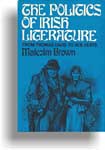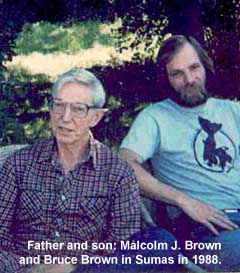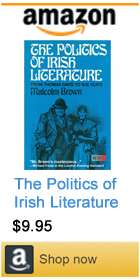Chapter Twenty
The Irish Party in Maneuver
BY THE END of 1883 Parnell began to look unbeatable. He had precipitated the "fall of feudalism in Ireland," demoralized the gentry, driven "Buckshot" Forster out of office, tamed Davitt and Dillon, silenced his maenad sisters, hurried Gladstone and the Liberal party off to conduct private debates on the hidden virtue of Home Rule, confounded a hostile papal rescript, and ridden out safely both the Phoenix Park assassinations and James Carey's garrulousness at the witness table. His lifelong enemy, the London Times, confessed itself mastered: "The Irishman has played his cards well, and is making a golden harvest. He has beaten a legion of landlords, lawyers, and encumbrances of all sorts out of the field, driving them into workhouses. He has baffled the greatest of legislators, and outflanked the largest of British armies in getting what he thinks his due."' Parnell himself noted dryly that his power already exceeded O'Connell's and was still rising. That power he now diverted into his single-minded post Kilmainham objective: to force Parliament to make Ireland a free gift of her independence.
Parnell's first move under his revised offensive was to start up his own newspaper. Drawing from the American funds, he bought up Richard Pigott's printing presses and commenced publication of a weekly called United Ireland (not to be confused with various newspapers of similar name conducted by John Mitchel, Arthur Griffith, and General O'Duffy). Nobody could have said that the newspaper shared in Parnell's own qualities of silence and coldness. For editor he selected a young repc rter from Cork named William O'Brien, another Irishman in possession of a fearful word hoard. Once when he was in jail he wrote a novel called When We Were Boys (1890). He apologized for its epic excesses; if he had had a shorter jail sentence, he said, he could have been more economical in his verbal
effects. It is by no means an imperishable work of art, but it has a striking verbal energy. In writing for United Ireland, O'Brien developed a talent to sting and to rally that rivaled Mitchel's. Putting aside the sedate and learned journalistic style developed by the Nation under Duffy and the Sullivans and practiced, too, by O'Leary on the Irish People, he brought to perfection the Irish newspaper mannerism that Yeats called "pepper-pot."
A passage from O'Brien's leading article on the Kilmainham treaty will suggest the free and easy belligerence of United Ireland: ". . . the money it [the Castle] spends and the favors it distributes, and the foul toads who use it as a cistern to knot and gender in it, are just the things which make the harmless travesty of Vice-Royalty an offence and scorn to Irishmen. The toads are the gang of alien officials who nestle in the snuggeries of the Castle like as many asps in the bosom of their country. Down with the whole bundle of rottenness and imposture!" This stirring message went to press on Thursday, May 4, 1882, and appeared on the Saturday of the Phoenix Park murders. English members suggested in the House that O'Brien's prose style had inspired the murders. The next Saturday his hysteria against the assassins outscreamed the English press itself.
This frenzy was the antithesis of Parnell's self-control, but Parnell liked O'Brien the better for that. He raised no objections to United Ireland (though he did not read it himself), and cheered O'Brien on, freeing the paper from any league executive veto and guaranteeing him whatever financial support he needed to fight off his multiplying brood of libel litigations. Later O'Brien argued that his verbal fury was never intended to be taken seriously: "Violence is the only way of insuring a hearing for moderation." This stratagem obviously embodied incompatibilities, and they troubled him. He once told Wilfred Blunt, "I sometimes think of Joe Brady and O'Donovan Rossa, and my mind misgives me whether they may not all this while have been right and we the botchers."4 The time-honored anodyne for the pains of political contradictions was the cultivation of the national mystique, and O'Brien welcomed it back affectionately from its long vacation during the hardheaded materialistic epochs of Fenianism, parliamentary obstruction, and the land war.
He could invoke without effort all the standardized, or Sullivanite, forms of sanctimonious political spirituality. The hero in his novel exclaimed: "Woe's the day [when] this high-strung Irish race of ours gives up its faith! It is to us what purity is to a woman. Without mystery, without the supernatural, both in religion and in politics, every fruit we care for turns to ashes upon Irish lips." Like Patrick Pearse he repeopled the countryside with barefoot saints "governed by the harp and the Angelus bell." The stoical Old Fenian exaltation of the man in the gap he transposed into pure maudlin. In one of the scenes of his novel the hero is on trial in Green Street Courthouse for treason. He meets another defendant called "the poet" coming from the courtroom: "'What luck?'Ken whispered, as they clasped hands. The poet's large, melancholy eyes filled with a luminous glow, and the sweetest smile came over the deep-dug lines that curved from his nostrils around the comers of his mouth. `The best of all luck-death for Ireland!"' T. D. Sullivan naturally interpreted Parnell's newspaper venture as a raid into his private poetic property. As I have noted, he once belittled John O'Leary's newspaper competition with the taunt, "and it never paid." He could not say the same for United Ireland. O'Brien's sensationalism sent his circulation soaring to one hundred thousand, stealing away the Nation's subscribers until its net worth sank toward zero...
|
|
Table of Contents
|

|
Astonisher.com is pleased to offer these excerpts from The Politics of Irish Literature by Malcolm Brown...
Praise for
The Politics of Irish Literature |
 |
|
"This brilliant study of the intersection of politics and literature in Ireland amounts to a dazzling portrait gallery. Reading it one feels about one the breath, warmth, and passions of the dead all come alive again."
-- Sean O'Faolain in the Manchester Guardian
"Mr. Brown's masterpiece has made me want to hire a nearby housetop and recite whole chunks to every passerby..."
-- Michael Foote in the London Evening Standard
"The author of the best book on George Moore now gives us what is in all likelihood the best book on the politics of modern Irish literature."
-- Virginia Quarterly Review
|
|

University of Washington Professor Malcolm J. Brown (1910 - 1992) with his son, Bruce Brown, in Sumas, WA, July 1988.
|
Additional reading -- Malcolm Brown's George Moore: A Reconsideration. Also see Bruce Brown's commentary on The History of the Corporation for Malcolm Brown's contribution to that work.
|
|
|






